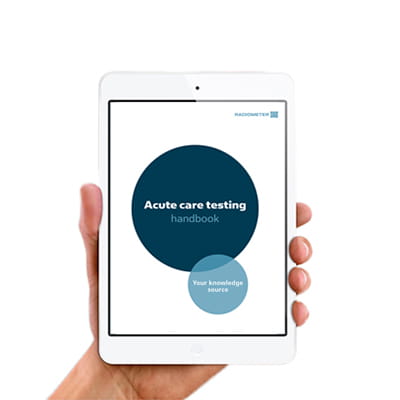Printed from acutecaretesting.org
January 2014
A drug-mediated cause of metabolic alkalosis examined
Summarized from Patel A, Adenseun G, Goldfarb S. Calcium-alkali syndrome in the modern era. Nutrients 2013; 5: 4880-93 Arroyo M, Fenves A, Emmet M. The calcium-alkali syndrome. Baylor University Medical Center Proceedings 2013; 26: 1 sdfsdf
The general truth that disturbance of acid-base homeostasis and associated abnormal blood gas results can be caused by drugs – both those prescribed and those bought over the counter, as well as those used illicitly – is reflected in a recent review article.
Metabolic alkalosis, an acid-base disturbance characterized by a primary increase in bicarbonate and pH, and a secondary (compensatory) increase in pCO2, has many possible causes. Among them is the subject of this review article: calcium-alkali syndrome, which results from excessive use of calcium-supplement drugs or calcium-containing antacid drugs. Both classes of drugs are prescribed but are also available “over the counter” without prescription. The defining features of the syndrome are the triad: metabolic alkalosis, hypercalcemia and renal failure. Topics discussed in this review include a historical perspective of the syndrome (originally named milk-alkali syndrome) that was first described in 1930s as an adverse effect of a once widely used antacid treatment for peptic ulcer that involved drinking a cocktail of milk, cream and alkali. The treatment fell out of favor during the 1970s when alternative, more effective drugs for the treatment of peptic ulcer became available, and the syndrome gradually faded away. The reasons for the re-emergence of milk-alkali syndrome since the 1990s and renaming it calcium-alkali syndrome are discussed. According to one study cited in the review, the syndrome is now the third most common cause of hypercalcemia and the second most common cause of severe hypercalcemia (>3.5 mmol/L, 14 mg/dL). After discussion of the epidemiology of the syndrome that identifies high-risk groups, the authors turn attention to its pathophysiology. This part includes a detailed discussion of the regulatory mechanisms involved in maintaining normal blood calcium levels and how these mechanisms are disturbed by excessive use of calcium supplements. Finally, the authors discuss preventative measures (judicious use of calcium and vitamin D supplements) to avoid calcium-alkali syndrome, and treatment options for those affected. The primary aim of treatment is to minimize calcium intake and increase calcium excretion to correct hypercalcemia. Calcium-lowering drugs (e.g. bisphosphonates) or even dialysis may be necessary.
In a separate article, Drs Arroyo, Fenez and Emmett from the Department of Internal Medicine at Baylor University Medical Center in Dallas describe the case history of a 78-year-old lady in their care who had developed calcium-alkali syndrome following ingestion of around 50 calcium carbonate antacid tablets over a period of 3 days to self-treat her symptoms of heartburn. This was in addition to her regular (prescribed) calcium and vitamin D supplements. She presented with the classic triad: hypercalcemia (her serum calcium was 3.60 mmol/L, 14.4 mg/dL); metabolic alkalosis (her serum bicarbonate was 32 mmol/L); and renal failure (her serum creatinine was 256 µmol/L, 2.9 mg/dL). After withdrawal of all calcium and vitamin D supplements along with iv administration of normal saline, blood results gradually normalized over the following few days and she was discharged 5 days after admission with advice on the proper use of over-the-counter medicines, including those that cause calcium-alkali syndrome.
May contain information that is not supported by performance and intended use claims of Radiometer's products. See also Legal info.
Acute care testing handbook
Get the acute care testing handbook
Your practical guide to critical parameters in acute care testing.
Download nowScientific webinars
Check out the list of webinars
Radiometer and acutecaretesting.org present free educational webinars on topics surrounding acute care testing presented by international experts.
Go to webinars







